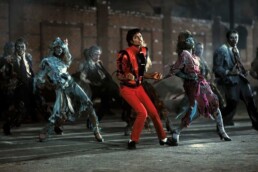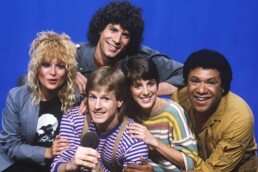The early 1980s were a period of cultural and technological upheaval. As cable television became more prevalent in American households, people’s media consumption habits changed dramatically. In the middle of this transition, a groundbreaking endeavour was about to forever alter the landscape of popular culture. On August 1, 1981, MTV (Music Television) made its debut, ushering in a new era of music and entertainment. The Buggles’ “Video Killed the Radio Star” was a symbolic and literal statement of the dramatic transformation that MTV would bring.
MTV’s concept was audaciously basic but profoundly innovative: a 24-hour channel dedicated solely to music videos. This original notion drew audiences, particularly young people who were looking for a new and exciting way to interact with their favourite musicians. The channel’s introduction of Video Jockeys (VJs) as dynamic hosts provided a personal touch to the viewing experience, making it more participatory and enjoyable. MTV swiftly became a cultural phenomenon, more than just a music channel, with a strong influence on fashion, language, and lifestyle.
It’s impact on the music industry was instantaneous and dramatic. For musicians, having their music videos shown on MTV might propel them to fame. The visual component of music videos provided a new dimension to artistry, allowing performers to express themselves beyond auditory records. Iconic videos like Michael Jackson’s “Thriller,” with its innovative production and dancing, and Madonna’s “Like a Virgin,” with its daring images, became cultural icons. These videos did more than merely sell songs; they built visual narratives that got deeply embedded in the popular mind.
Beyond individual artists, MTV had a tremendous impact on the music industry’s economy. Music videos became indispensable marketing tools, propelling album sales and concert attendance. The symbiotic relationship between MTV and the music industry created an environment in which visual artistry was valued as much as musical genius, ushering in a golden age of music videos.
MTV’s effect stretched well beyond music. The channel became a cultural reference point, reflecting and driving societal trends. The fashion choices of MTV performers, from Madonna’s edgy style to the glam rock appearance of bands like Duran Duran, served as inspiration for youth fashion. MTV did more than just transmit music; it also aired a lifestyle that millions of people aspired to. Shows like “MTV Unplugged,” which highlighted musicians’ acoustic performances, and “Yo! MTV Raps,” which introduced hip-hop to a larger audience, helped to widen the channel’s cultural influence.
Recognising the potential of its platform, the channel began to address social and political concerns as well. Campaigns such as “Rock the Vote” encouraged young people to participate in the democratic process, and its coverage of major events provided a youthful viewpoint on news that was frequently omitted from mainstream media. This willingness to address crucial issues contributed to MTV’s reputation as more than just an entertainment channel; it became a voice for a generation.
However, the technological developments that once empowered MTV later presented serious obstacles. The development of the internet in the late 1990s and early 2000s transformed how people consumed music and information. The introduction of platforms like as YouTube provided fast access to a wide range of music videos, reducing the requirement for a dedicated music video channel. Streaming services further split viewing by offering personalised music experiences that MTV couldn’t imitate.
In response, MTV tried to change its focus from music videos to reality television and other non-music programs. Shows like “The Real World,” “Jersey Shore,” and “Teen Mom” attracted large audiences and kept the channel relevant for a while. However, this shift sparked accusations that MTV had drifted too far from its original objective, alienating core viewers who had grown up with its music-focused reputation.
Despite these efforts, MTV’s cultural influence was clearly declining. The channel that was once at the vanguard of musical and cultural innovation struggled to stay relevant in a swiftly changing digital market. While MTV still exists, its influence has been significantly weakened, overshadowed by the very technology developments it once championed.
Reflecting on the beginning of MTV, it is apparent that it had a significant and far-reaching impact. It transformed the music industry, altered global culture, and provided a voice for a generation. Though it eventually succumbed to the very forces of change that it helped to initiate, MTV’s impact as a cultural pioneer is undeniable. The narrative of MTV demonstrates the power of invention and the ever-changing nature of media and entertainment.







